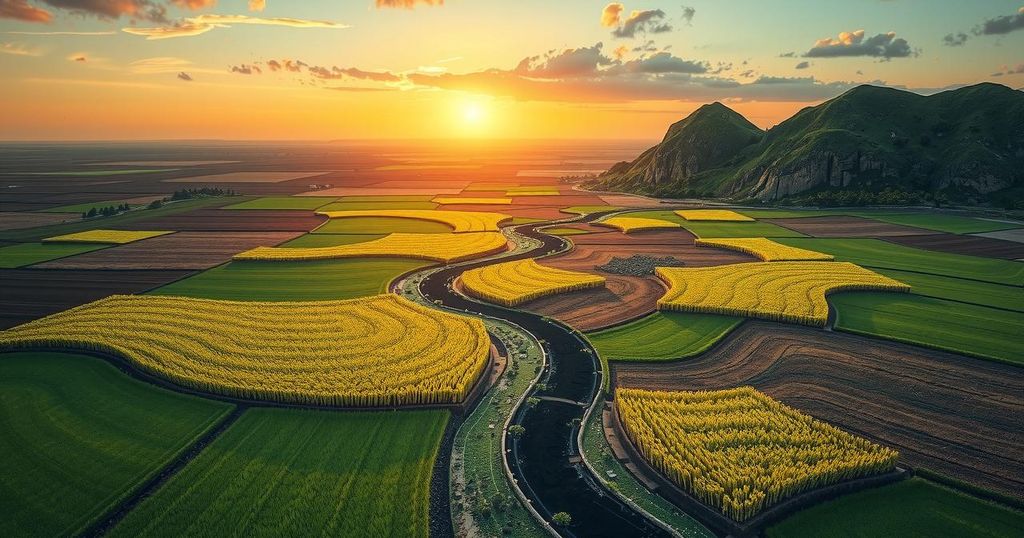Examining South Africa’s Land Inequality Amid Political Controversy

The land inequality crisis in South Africa, rooted in apartheid policies, has led to the government implementing a new expropriation act aimed at redistributing land. President Ramaphosa’s act allows for land expropriation in the public interest, though no property seizures have occurred yet. The law has attracted international scrutiny, especially from figures like Trump and Musk, who claim it discriminates against White farmers, while local critics point out continued economic disparities and argue for just compensation in land redistribution.
South Africa has grappling with deep-rooted land inequality, a legacy of apartheid policies that removed non-White citizens from land ownership for the benefit of White populations. The 1913 Land Act allowed Black South Africans to own merely 7% of the land, which was later amended to 13%. As of a 2017 government audit, 81% of South Africa’s population is Black, yet they own only 4% of private land.
To address these inequities, President Cyril Ramaphosa signed a controversial expropriation act aimed at redistributing land. This act permits the government to take land for public interest, sometimes without compensation. However, the implementation of this act has yet to involve actual seizures of private property.
The law has ignited racial tensions, attracting criticism from figures such as Donald Trump and Elon Musk, who allege that it unfairly targets White farmers. Musk claims the South African government enforces racist ownership laws, a sentiment that some local White South Africans contest.
David Van Wyk, a Bloemfontein resident, refuted the notion that White South Africans are victims, emphasizing that they maintain significantly higher incomes than the majority of the Black population. He argues that the expropriation act is fundamentally necessary to confront the historical injustices of land ownership.
Contrastingly, attorney Henk Smith expressed concerns regarding how the act attempts to rectify these inequalities, suggesting there must be just compensation for expropriated land. In response to subsidies being cut, Trump mandated the halting of $440 million in U.S. aid to South Africa, claiming the government fosters violence against racially marginalized property owners.
Ramaphosa has voiced apprehension over the implications of these U.S. aid reductions, particularly concerning health programs in South Africa, representing a crucial percentage of the country’s HIV spending. Furthermore, there are fears that disengagement from the African Growth and Opportunities Act by the U.S. could significantly harm South Africa’s agricultural sector.
Spokespersons from South Africa’s government and agricultural sector have contested misrepresentations of the expropriation act that indicate land seizures targeting White citizens. AgriSA stated that no properties have been confiscated under this law, labeling the fears as disinformation.
The Solidarity Movement, which represents Afrikaners, has condemned many race laws, including the expropriation act, while also emphasizing that they do not accuse the government of widespread land grabs. Meanwhile, Kallie Kriel of AfriForum echoed Trump’s claims that specific societal sectors are being treated unjustly, despite ongoing debates over alleged threats against White farmers.
In summary, the South African government’s efforts to address historical land inequalities through an expropriation act has reignited discussions around race and land ownership in the country. Figures like Donald Trump and Elon Musk have drawn international attention by framing the situation as discriminatory against White farmers. However, local voices challenge this perspective, underscoring the necessity for balanced land redistribution and clarifying that actual land seizures have not occurred. As the narrative unfolds, the ramifications of U.S. aid cuts and the social climate continue to raise concerns among South Africans.
Original Source: www.wral.com







